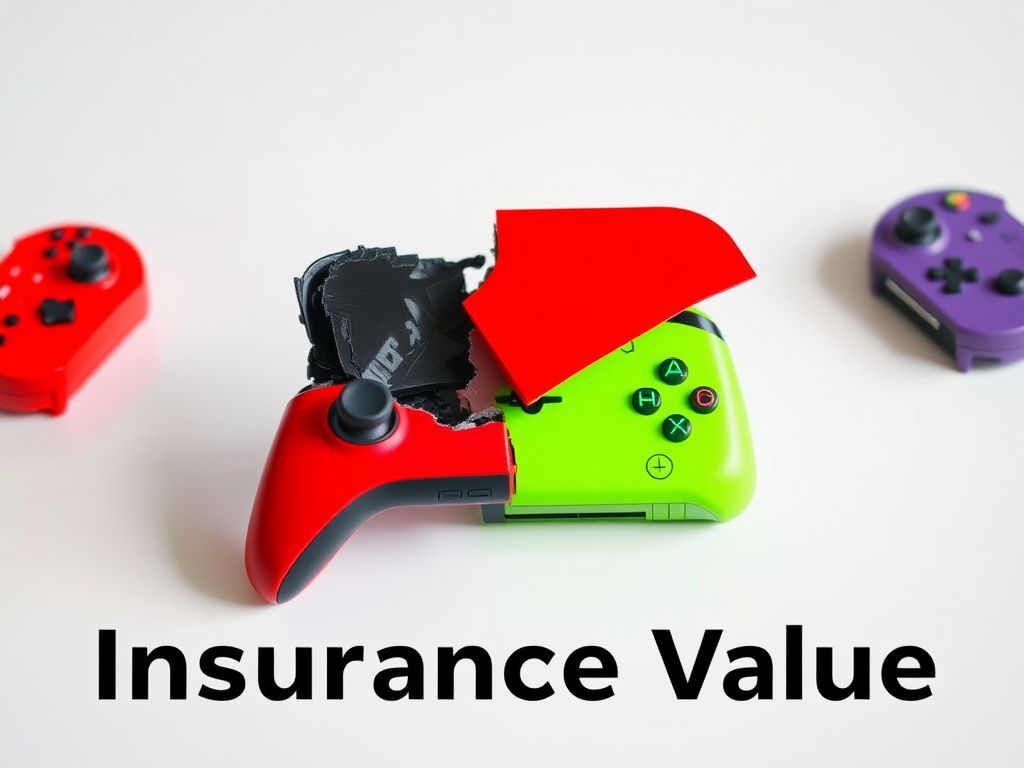The gaming industry has rapidly evolved into a multi-billion dollar business, captivating fans across generations. With each new console release, gamers invest significant amounts of money, often viewing these devices as more than mere leisure items—they’re gateways to expansive worlds and communities. As these consoles grow in value and become integral to our daily lives, the idea of protecting them has gained traction. Enter gaming console insurance, a relatively new concept designed to shield gamers from unexpected mishaps. Recently, a number of insurance providers have jumped on the bandwagon, offering tailored plans to cater to the unique needs of the gaming community.
For gamers, the question remains: is gaming console insurance really worth it? In this article, we will dive deeper into the ins and outs of gaming console insurance, assessing its necessity and costs. By the end, you’ll be equipped to make an informed decision about whether this coverage aligns with your gaming lifestyle and investment.
Understanding Gaming Console Insurance

Gaming console insurance refers to specialized coverage that protects your gaming system from various risks. This type of insurance typically covers incidents such as accidental damage, theft, and mechanical failures, ensuring that your beloved equipment remains safe. Many policies are designed to specifically address gamer concerns, providing solutions not commonly found under standard home insurance plans. For instance, most homeowner’s insurance may not fully cover the replacement costs for high-end gaming systems or the accompanying accessories.
In addition to the basics, gaming console insurance can also extend to cover peripherals like controllers and VR headsets. To help illuminate the specifics, here’s a quick overview of common coverages:
- Accidental damage protection
- Theft and loss coverage
- Mechanical failure and hardware malfunctions
The Necessity of Gaming Console Insurance

Owning a gaming console can be akin to holding an asset, given the investment many gamers make today. High-end consoles, along with exclusive games and accessories, can quickly rack up a hefty price tag. With the surge in popularity comes an increased risk associated with ownership. Statistics reveal that a notable number of gamers face situations leading to console damage or theft each year.
Here are some common risks faced by gamers:
- Accidental damage from drops or spills.
- Power surges and electrical issues.
- Theft during travel or home invasions.
Understanding these risks can help determine if insurance is a prudent investment. Accidental damage can occur in the blink of an eye. Whether it’s a cat knocking over a drink or a dropped console during transportation, these incidents are more common than one might think. Additionally, myriad electrical issues can lead to costly repairs or replacements, posing potential threats to both the console and the gaming ecosystem.
Another critical concern is theft; it can happen during travel or in the comfort of one’s own home. High-value gaming systems are often targeted, making it essential for gamers to consider potential risks in everyday scenarios.
The Costs of Gaming Console Insurance
When weighing the benefits of gaming console insurance, understanding the cost is vital. Insurance premiums vary by provider and coverage options, typically falling within a specific range. Below is a comparative breakdown of average costs associated with gaming console insurance:
| Insurance Provider | Monthly Premium | Deductible |
|---|---|---|
| Provider A | $15 | $50 |
| Provider B | $20 | $30 |
| Provider C | $10 | $70 |
In comparison, the costs of repairing or replacing a damaged console can be significantly higher. Having insurance can potentially save gamers a substantial amount of money in these circumstances. However, each individual’s gaming habits and financial situation must also be taken into account.
Pros and Cons of Gaming Console Insurance
Advantages
There are several benefits of investing in gaming console insurance that can provide peace of mind for gamers:
- Financial protection against unforeseen damages and theft.
- Peace of mind for avid gamers and collectors.
- Options for customizable coverage that fit individual needs.
Disadvantages
On the flip side, some drawbacks must also be considered:
- The ongoing monthly or annual cost versus the potential payout.
- Possible limitations and exclusions in coverage.
- Challenges in the claims process may arise.
Who Should Consider Gaming Console Insurance?
Gaming console insurance might not be for everyone. However, certain profiles of gamers could benefit significantly from this coverage. Typically, those who invest heavily in gaming technology, such as collectors and hardcore gamers, will find this insurance valuable.
Casual gamers might question the necessity of such insurance due to the less frequent use and lower initial investment in their consoles. On the other hand, dedicated gamers who use their consoles daily and have multiple peripherals should seriously weigh the potential risks associated with ownership.
Conclusion
In sum, whether to purchase gaming console insurance is a decision that requires careful consideration of personal gaming habits, potential risks, and financial implications. Assessing both the benefits and costs will provide clarity on whether this insurance aligns with your individual needs. The choice ultimately rests on the value you place on your gaming equipment and your level of risk tolerance.
Frequently Asked Questions
- What does gaming console insurance typically cover? Coverage usually includes accidental damage, theft, and mechanical failures.
- How much does gaming console insurance cost? The cost can range based on coverage, averaging between $10 to $30 a month.
- Can I get insurance for used consoles? Yes, many insurers cover both new and used gaming consoles.
- What is the claims process like? The claims process can vary but typically involves submitting documentation of damage and proof of purchase.
- Is gaming console insurance worth the investment? This depends on individual circumstances, including console value and gaming habits.



